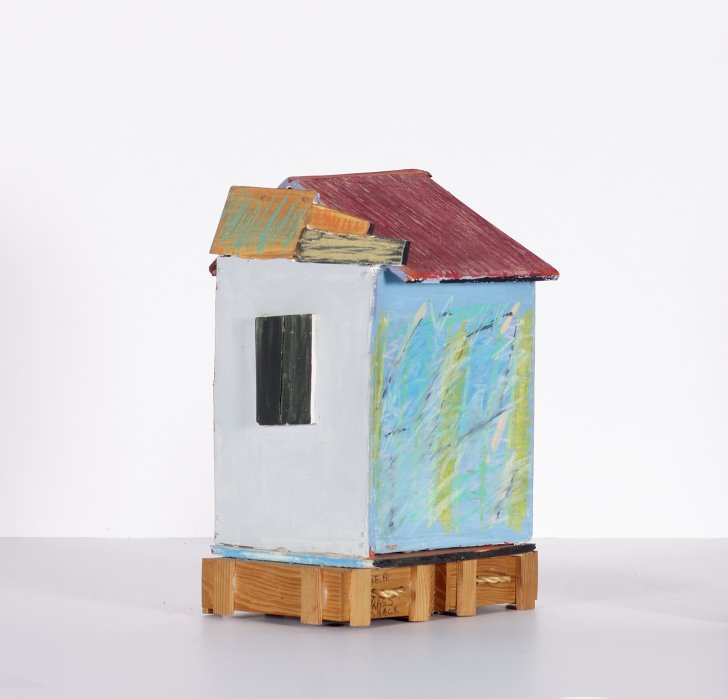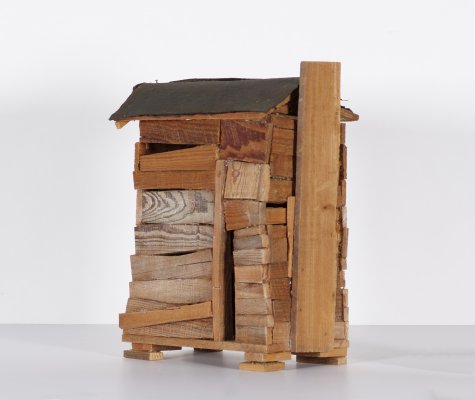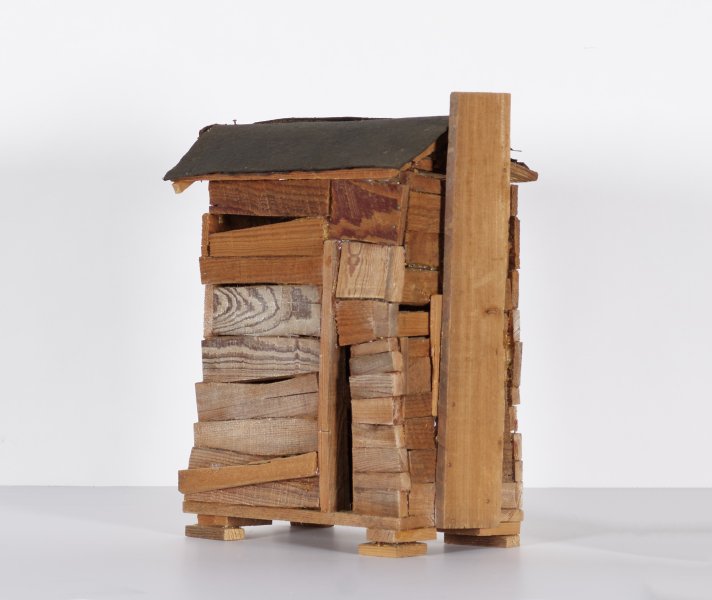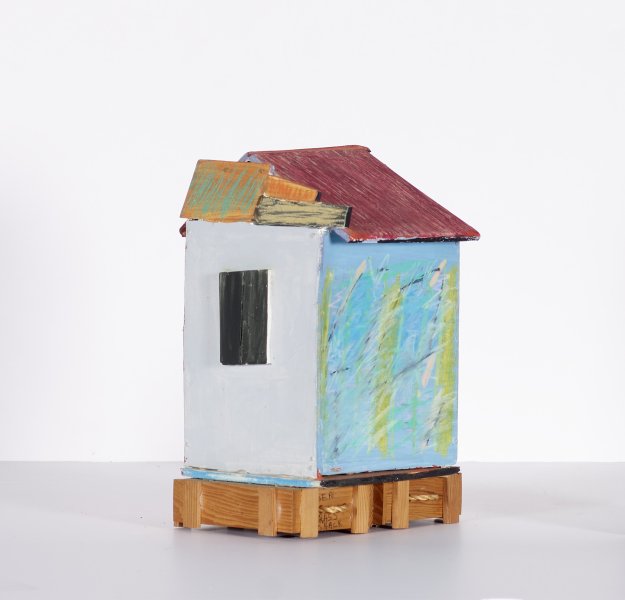Brown Shack and Seagrass Shack are just two examples from a number of sculptures celebrating the everyday architecture of the rural South and its residents that Beverly Buchanan made between 1986 and her death in 2015.
The artist first encountered the houses and people that would inspire these works as a child while accompanying her father, a professor of agriculture, on tours of farms across South Carolina. Some of these farmers would have been sharecroppers, renting their land under often highly unfavorable terms in exchange for a share of the crop. Throughout the South, such a practice allowed for a kind of continuation of slavery, tying families to the land through debt. However, Buchanan recognized in the homes and gardens these individuals created for themselves a vitality animated by their defiant hopes and dreams—a far cry from stereotypes of hopelessness and poverty.
While Buchanan's work was previously featured in the exhibition We Wanted a Revolution: Black Radical Women, 1965–85, Brown Shack and Seagrass Shack are her first sculptures to enter the museum's collection.



